I am new to Open-cl and I am trying to write kernel code for the following matrix operation:
A is a 2X2 matrix:
A = [1 2] ----> row1
[3 4] ----->row2
I need to compute:
1) s1 = transpose(row1) X row1
2) s1 = transpose(row2) X row2
3) Sum = s1+s2

I wrote kernel code for row level (i.e I can do transpose(row1) X row1 ) -this serves the purpose for first row only
How do I use parallelism to compute this for each row and find the final sum within kernel function ?
private static String programSource1 =
"__kernel"+
" void matrixMul(__global float* A, __global float* C, int rowLength)"+
"{"+
"int row = get_global_id(1);"+
"int col = get_global_id(0);"+
"C[row*rowLength+col] = A[col] * A[row];"+
"}";